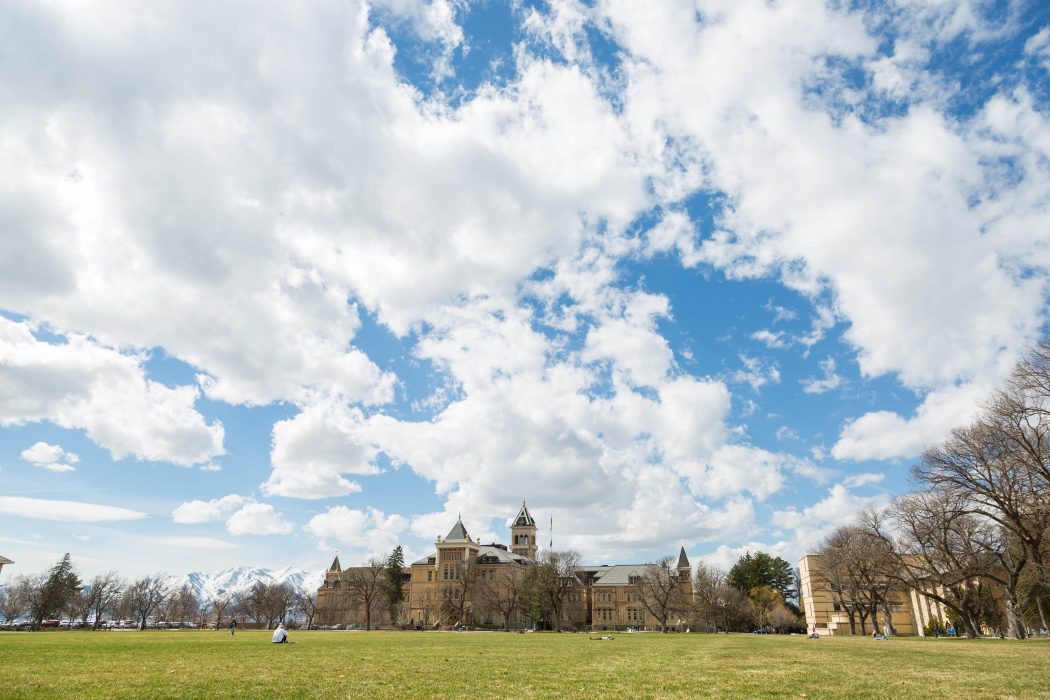USU revamps exploratory advising system
Advisors from Utah State University are revising their intervention timeline to help more than 2,200 exploratory students find the major and career path that is right for them.
“The reality is that an exploratory status gets in the way of graduation,” Mykel Beorchia, director of USU Advising, said.
According to Beorchia, undeclared or exploratory students leave campus at a higher rate than any other group. During the 2016-2017 school year, exploratory advising began to compile data on exploratory students and compare their graduation and retention rates with students who entered the university with a declared major.
According to the Exploratory Advising Assessment conducted by USU, exploratory students who declare a major within their first year have graduation rates comparable to normal college graduation rates for bachelor’s degrees.
Heidi Kesler, director of USU Student Retention and Completion, said it makes sense that students who do not declare a major have trouble finding their place on campus.
“Students need to know why they are here and have a connection to a major,” Kesler said.
According to Kesler, after missions for the Church of Jesus Christ of Latter-day Saints, the most common reasons for students to leave USU are to transfer and for financial purposes. “Especially for exploratory students who are undecided, once they start earning a steady paycheck in the real world, they often don’t come back,” Kesler said.
Kesler wants to warn students, however, that taking any time off college is costlier than people think.
“Students think they are saving money, but in reality, the cost of taking a semester off is more than the $3,000 price tag,” Kesler said. “You are costing yourself money by delaying the ability to get more income, retirement benefits and other benefits that a degree can give you.”
The solution, according to Beorchia, is to get students connected to a program early in their college career. “We have two objectives: help students get connected and connect them to a program that already exists,” she said.
Beorchia cites the USU College of Humanities and Social Sciences as an institution that has helped university advising with their exploratory students.
“The College of Humanities and Social Sciences really helps students get plugged in socially; then they have connections and can start having conversations,” Beorchia said.
According to Beorchia, ultimately building relationships and having contacts helps students find where they belong.
“Having more faculty engaged in helping students explore at an early stage helps as well,” Donna Crow, executive director for USU Career Services, said.
Beorchia said future research for exploratory students will center on six different focus areas, and the plans for those focus areas are still in the works. “It’s not about the numbers, though. It’s about how we are helping students define their goals and values,” she said.
One of the problems, according to Kesler, is that students think that what they are excited about doesn’t translate to a job.
Crow added this thinking stems from “dysfunctional beliefs.” “It’s the thought of, ‘I can’t do that or make a living off that,’” she said.
Crow and Kesler both agree that the development of soft skills is what is most valuable to employers, skills like the ability to work in teams, communicate and prioritize work. Kesler said employers are also looking for people who can “be critical in their thinking.”
Beorchia encourages students to expand their horizons. “For example, I had a student come in who liked science but didn’t realize that plant science was an option. Now he can do something he loves,” she added.
According to Crow, discovering different paths is why internships and job fairs are so important.
“My favorite story is the freshman who keeps running into the same employer they connect with at the job fair every year and then gets hired after graduation,” Crow said.
There is good news for exploratory students, however. In the data collected by USU, students who begin as undeclared change their major less often than students who have a major declared when they start as freshman. According to the Hechinger Report, a nonprofit newsroom that reports on education, sticking with one major saves students time and money.
Beorchia is also hopeful about their numbers: “We are only halfway through the semester, and we are only six students off from having the same rate of declared majors as we typically do at the end of a semester.”
All three directors want students to know they should not be afraid to fail and understand there is not one path for everyone.
taylorcripe@gmail.com
@cripe_taylor

